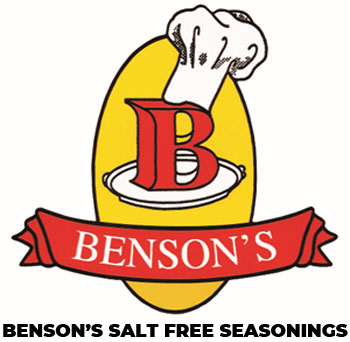By Debbie Benson
Salt-free seasonings are the key to living on a low sodium diet. Low sodium diets do not have to be bland. You need good quality salt-free seasonings. The seasonings need to be fresh with good aroma and you need a variety of them. You will be surprised how quickly you can become tired of the same flavors day in and day out, without salt.
For example, you wouldn’t put the same seasoning on fish that you would put on a steak. Fish is more delicate and would need a lighter seasoning whereas a steak would need a stronger seasoning blend to get enough flavor to keep it from being bland. This is not to say you couldn’t use a grilling seasoning on both. As a rule, you will find that by using different salt-free seasonings for different foods, you will achieve more flavorful results.
What’s interesting is that when you cook with salt, you can pretty much use the same seasonings year in and year out on everything and you are perfectly happy. This is because you are really just getting the salt taste with very little flavor. This is what you like because this is what your taste buds are used to. Take the salt out and the food will be bland and boring as everything starts tasting the same.
Learning to live on a low sodium diet or a salt-free diet is about getting the salt and sodium out of your food and getting the flavor in. Besides salt-free seasonings, you will be adding more vegetables to your cooking, like onions, carrots, celery, bell peppers, chilies, etc. An assortment of vegetables along with your salt-free seasonings will add a lot of flavor and don’t forget to use fresh garlic and you can always add some fresh herbs and freshly ground black pepper.
You can also sprinkle your salt-free seasonings on the food and let it sit for a while. This is a dry marinade, or rub them into the meat and this would be a dry rub. Traditionally a dry rub has salt and sugar, but this does not have to be the case. Using the dry rub technique gives the seasonings time to get into the food and not just sit on the surface.
Add a water or a little oil, (oil works better), to the seasonings and you have a paste. You can apply the paste to make a thicker layer of seasoning to the meat.
You can also marinate your meats or vegetables. A marinade is really just using an acid like (wine, vinegar, or lemon juice), oil and seasoning. A marinade does not have to have salt in it, it just needs to be flavorful. A marinade helps break down the tissue, or fibers and lets the meat take in the flavors. A marinade also naturally tenderizes meats, especially without salt. Salt can actually draw out moisture. Salting meat and dehydrating it is how jerky is made. This is also why many folks salt their eggplant, to draw out the moisture. You may actually notice a more tender meat or steak because you are not using salt.
Note: A marinade can be used for 10 to 30 minutes or for the best results, several hours or overnight. You need to watch the marinating time when adding acid, especially fresh lemon or lime juice to fish because these will start to cook the fish. This is what is called ceviche.
By using really good salt-free seasonings you’ll find a low sodium diet can be heart healthy, delicious and be a low sodium diet you can live with.
